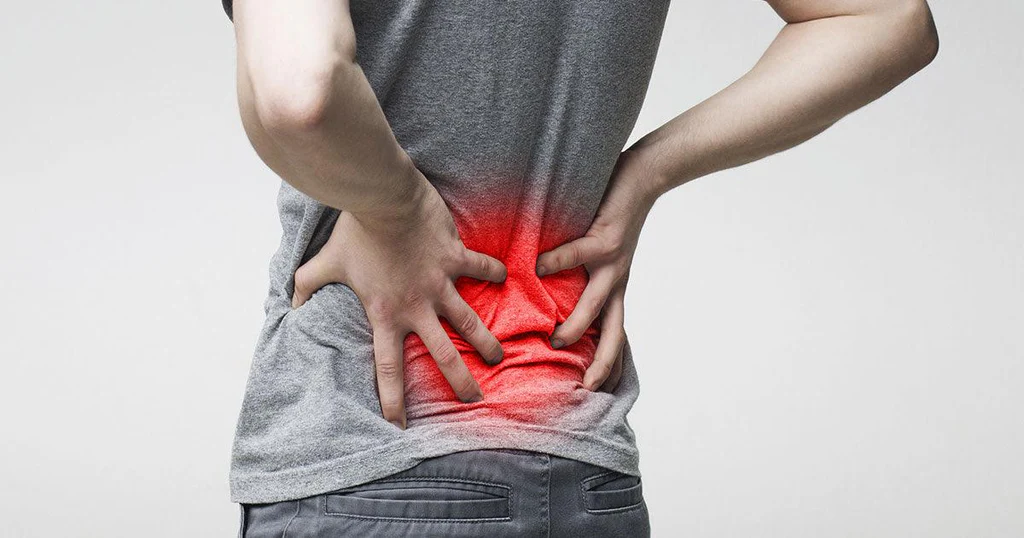New Delhi, 28 September 2025: Back pain is one of the most common health complaints worldwide, affecting people across all age groups. While most cases are linked to lifestyle issues such as poor posture, muscle strain, or sedentary habits, recent research has found that persistent or chronic back pain may signal a higher risk of serious underlying diseases. From cardiovascular problems and kidney issues to certain cancers, back pain can sometimes be more than “just an ache.”
This article explores how to differentiate between regular back pain and dangerous signs, the possible links with major diseases, and expert-backed ways to manage and prevent this widespread condition.
Why Persistent Back Pain Shouldn’t Be Ignored
Acute back pain that lasts a few days after heavy lifting or strenuous exercise is generally not alarming. However, persistent pain that lingers for weeks or keeps returning is a red flag. Doctors warn that when back pain doesn’t improve with rest, stretches, or over-the-counter remedies, it might be connected to systemic health issues that require medical evaluation.
Diseases Linked With Chronic Back Pain
1. Heart Disease
Studies show that people with chronic back pain may have a higher risk of cardiovascular disease. Restricted mobility, inflammation, and poor circulation may worsen heart health. In some cases, chest pain or blocked arteries can also cause referred pain in the upper back.
2. Kidney Disorders
Kidney stones or infections often manifest as sharp pain in the lower back or sides. Chronic kidney disease can also cause dull, persistent back pain along with fatigue and urinary changes.
3. Diabetes and Nerve Damage
Uncontrolled diabetes can damage nerves, causing neuropathic pain in the back, legs, or feet. Persistent back pain in diabetic patients should be taken seriously.
4. Spinal Disorders
Conditions like herniated discs, spinal stenosis, and scoliosis can cause chronic back pain. These conditions may worsen with age or poor posture.
5. Cancer
Though rare, certain cancers—like spinal tumors or metastasis from prostate, breast, or lung cancer—can present as long-lasting back pain, particularly when accompanied by weight loss, fever, or night sweats.
Warning Signs That Back Pain May Indicate a Serious Condition
You should seek urgent medical attention if your back pain comes with:
- Numbness or weakness in the legs.
- Unexplained weight loss.
- Fever or night sweats.
- Pain that wakes you up at night.
- Loss of bladder or bowel control.
- Pain that persists beyond 6 weeks despite rest and care.
Everyday Causes That Worsen Back Pain
Even when not linked to serious illness, lifestyle habits play a huge role in chronic back pain:
- Sitting for long hours without breaks.
- Poor posture while working on laptops or phones.
- Lack of exercise and weak core muscles.
- Obesity, which puts strain on the spine.
- Improper lifting techniques.
Expert Tips to Manage Persistent Back Pain
1. Stay Active
Contrary to old advice, prolonged bed rest often makes back pain worse. Gentle walking, stretching, and low-impact exercises like swimming can strengthen muscles and reduce stiffness.
2. Strengthen Core Muscles
Core exercises like planks, bridges, and yoga help support the spine and prevent recurrent back issues.
3. Ergonomic Adjustments
- Use a chair that supports your lower back.
- Keep screens at eye level to avoid slouching.
- Stand and stretch every 30–40 minutes during desk work.
4. Maintain Healthy Weight
Losing excess weight eases strain on the spine and reduces chronic back pain.
5. Heat and Cold Therapy
Applying a cold pack reduces inflammation, while a heating pad soothes stiff muscles. Alternate use may help in chronic cases.
6. Mind-Body Therapies
Yoga, meditation, and deep breathing can reduce stress and pain perception. Stress is often a hidden driver of back pain.
7. Medical Treatments
If pain persists, doctors may recommend:
- Physical therapy.
- Pain-relief medications.
- Steroid injections.
- Surgery in severe cases.
Preventive Habits for a Healthy Back
- Exercise daily: Even 20 minutes of stretching can make a difference.
- Lift safely: Bend at your knees, not your waist.
- Sleep well: Choose a medium-firm mattress that supports spinal alignment.
- Stay hydrated: Dehydration can weaken spinal discs.
- Quit smoking: Smoking reduces blood flow to spinal tissues.
The Mental Health Connection
Chronic back pain doesn’t just affect physical health—it also contributes to depression, anxiety, and poor sleep quality. Patients often find themselves in a cycle where pain worsens stress, and stress worsens pain. Psychological therapies like cognitive behavioral therapy (CBT) have been shown to help manage both the mental and physical burden of back pain.
Persistent back pain may seem like a minor inconvenience, but it can be your body’s way of warning you about deeper health problems. Whether it’s heart disease, kidney issues, diabetes, or even cancer, ignoring ongoing back discomfort can delay diagnosis of serious conditions.
On the other hand, lifestyle choices—like regular exercise, better posture, and healthy weight management—can go a long way in preventing back problems and improving quality of life. If your back pain refuses to go away, consult a doctor to rule out hidden risks. Sometimes, saving your back means saving your life.






